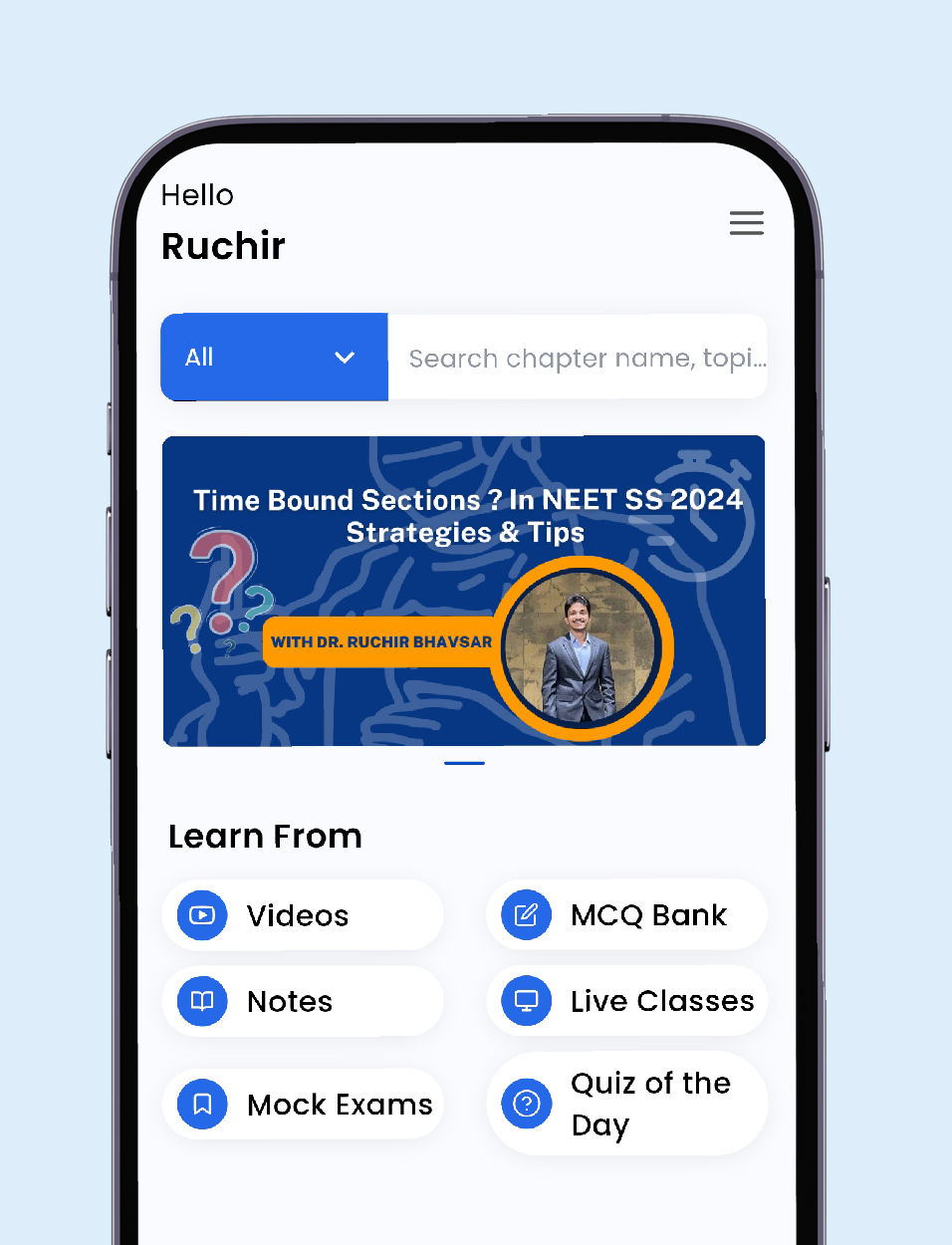By: Dr. Ruchir Bhavsar
NEET SS exams often feature lengthy clinical case scenarios and complex multiple-choice questions (MCQs). These questions require sharp analytical skills, clinical reasoning, and precise time management. In this guide, we’ll explore scientifically backed strategies, exam-proven techniques, and expert tips to help you handle lengthy questions efficiently while maximizing your score.
Why Are Lengthy Questions Challenging?
Lengthy questions are designed to:
- Assess clinical decision-making and diagnostic reasoning.
- Test in-depth knowledge of multiple topics simultaneously.
- Evaluate your ability to filter relevant from irrelevant data under pressure.
Scientific Techniques to Tackle Lengthy Questions
Cognitive Load Reduction Technique
The brain can process only a limited amount of information at a time. This principle is key when handling long NEET SS questions.
How to Apply:
- Break the question into manageable chunks (patient history, investigation findings, symptoms).
- Use a structured reading strategy:
- First Read: Skim the question quickly to identify the context.
- Second Read: Focus on key data (age, gender, major symptoms, relevant lab results).
- Third Read (if needed): Clarify specific aspects you may have missed.
Anchoring & Adjustment Technique
This psychological approach involves creating an initial hypothesis based on the first few pieces of information and adjusting it as more data becomes available.
How to Apply:
- Anchor: Start by considering the most likely diagnosis or answer after the first read.
- Adjust: Refine your answer as you consider additional information from the rest of the question.
Elimination Strategy
The process of elimination is scientifically proven to enhance decision-making by narrowing down incorrect options first.
How to Apply:
- Eliminate answers that contradict key facts in the question.
- Compare closely related options by looking for subtle differences in diagnostic criteria, treatment protocols, or definitions.
- Avoid Overthinking: Trust your preparation and avoid second-guessing yourself
Keyword Highlighting
Research shows that highlighting key terms in exam questions reduces cognitive strain and improves answer accuracy.
How to Apply:
- Focus on words like “best management, first step, next investigation, most likely diagnosis.”
- Use the RACE Rule:
- Recognize keywords
- Analyze the context
- Connect with what you know
- Evaluate answer choices
Time Management Strategies
Set Time Limits Per Question
- Aim for 40-45 seconds per question on average.
- Maximum 60 seconds for Difficult or Lengthy question and Flag and return later if needed.
Apply the 3-Pass Strategy
- Pass 1: Answer easy questions (under 30 seconds).
- Pass 2: Answer moderate questions (under 40 seconds).
- Pass 3: Return to flagged questions (use remaining time).
- On an Average Follow a strict timeline for each Q – Take 45 Seconds Per Question – if remaining 15 seconds for Revision.
Scientific Reading & Analysis Techniques
A. Last-Line First Approach
Start by reading the last line of the question or what the question is asking. This gives you context before reading the entire case.
Example:
“Which of the following is the most appropriate next step in management?”
- Knowing the expected answer type will help you focus while reading the question.
Reading the Stem Backward
- Read the answer options first before reading the question. This primes your brain to search for relevant data while reading the question stem.
Data Extraction Chart
Create a mental flowchart as you read:
- History: Major complaints, duration, past medical history
- Examination Findings: Vital signs, specific clinical signs
- Investigations: Labs, imaging findings
- Diagnosis/Treatment Required: Based on case details
Practice Techniques for Exam Success
Simulate Real Exam Conditions
- Practice full-length mock exams with a Q wise timing awareness to build endurance.
Progressive Question Sets
- Start with topic-specific practice and gradually increase complexity.
- Progress to mixed-topic, integrated question sets.
Review and Reflect
- Review your performance after every mock exam.
- Identify where you spent extra time and analyze mistakes.
- Create a personal improvement plan.
Use Spaced Repetition & Active Recall
- Spaced Repetition: Revisit high-yield topics regularly.
- Active Recall: Practice recalling information without looking at your notes.
Psychological Tips for Exam Day
Stay Calm & Focused
- Take deep breaths if you feel overwhelmed.
- Focus on one question at a time — avoid worrying about the entire exam.
Avoid Negative Thinking
- Don’t assume you’re running out of time.
- Trust your preparation — second-guessing leads to errors.
Mindfulness Breaks
- If allowed, take short breaks by closing your eyes for 10 seconds and breathing deeply.
Final Thoughts
Conquering lengthy NEET SS questions is about preparation, practice, and applying scientific strategies effectively. Use these research-backed techniques to sharpen your clinical reasoning, reduce time wastage, and maximize your exam performance.
Stay consistent, stay confident, and give your best! 🚀
Stay Connected: Follow our blog for more exam tips, in-depth strategies, and expert advice for NEET SS preparation. 📚💡





